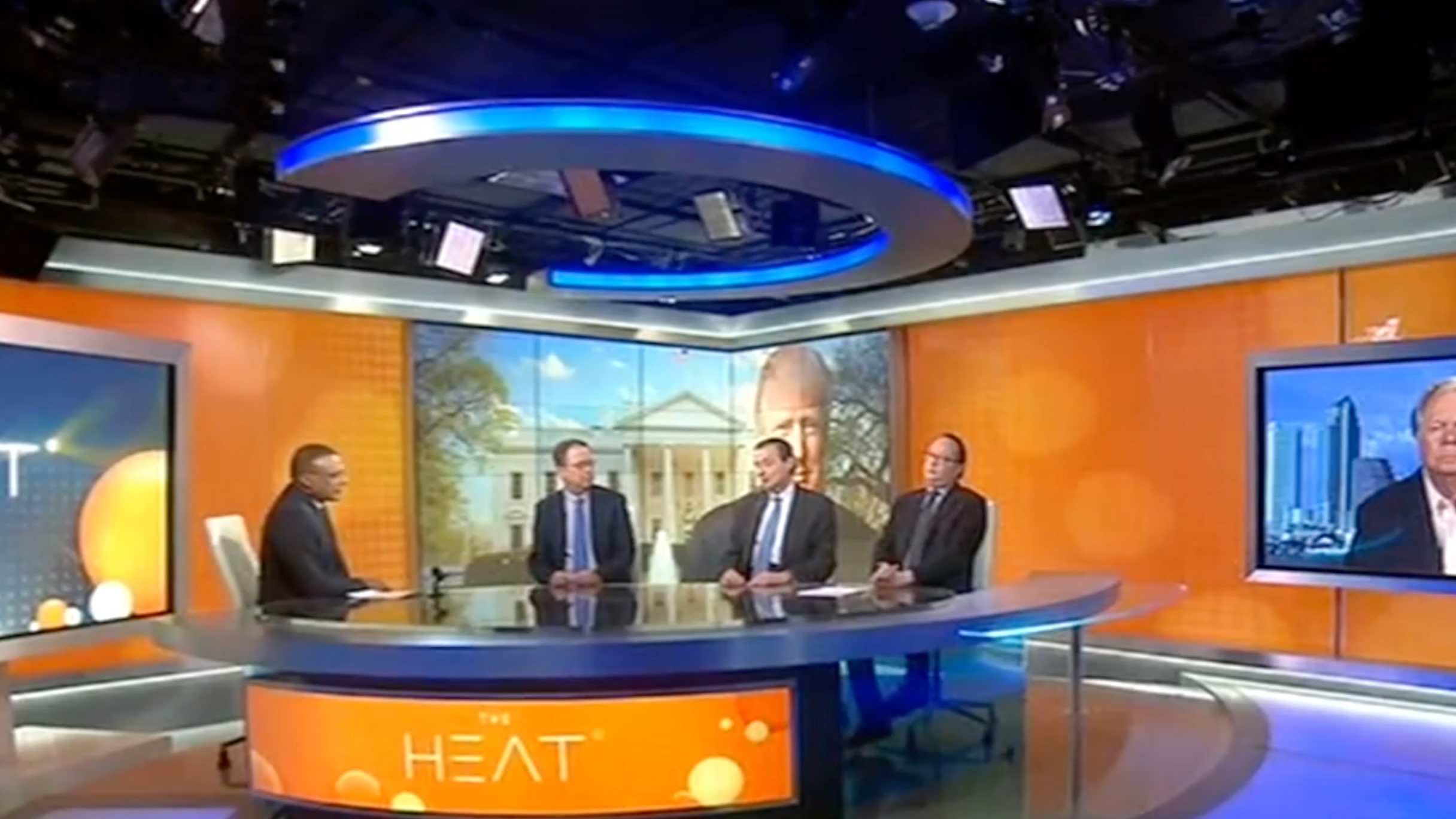
Opinions
21:27, 14-Mar-2018
Experts: Why Trump fires Tillerson
CGTN's the Heat

US President Donald Trump's surprising move to sack Rex Tillerson marked another day of drama in Washington.
Many are questioning why he made the abrupt decision to remove the former businessman who had helped him warm the US' relations with Russia and to appoint CIA director Mike Pompeo to the position of the country's top diplomat.
Paolo von Schirach, president of the Global Policy Institute, and Brian Becker, an analyst and commentator on international affairs, shared their views with CGTN's The Heat.
Schirach, also founder and editor of Schirachreport.com, said Rex is at odds with Donald Trump in both personality and major policies regarding the US, which was key to his firing.
"Tillerson came to his job with his own aura, with his own international cachet of negotiation, having negotiated over so many years as the CEO of Exxon-Mobil, mega deals around the world, including Russia," said Schirach.
Trump and Tillerson held different opinions over a variety of issues, ranging from the Paris climate accord to the North Korea (DPRK) negotiations to the tariff decisions the president rolled out days ago, Schirach added. And he attributed the last reason for the surprising sack of Tillerson to his repeatedly calling Trump a "moron" following a public feud over the past year.
Brian Becker, executive director of the Answer Coalition, emphasized that Tillerson's rift with Trump on the Iranian nuclear issue was behind Tillerson's removal.
"Iran was in completely compliance with the nuclear deal. But Donald Trump wants to sabotage and end this agreement. He's looking for a pretext. Mike Pompeo was a war hawk when it comes to Iran. When it comes to Congress, he and Donald Trump used the language, 'This is the worst deal ever.' And so he has, in Mike Pompeo's kindred spirit," the author of "Imperialism in the 21st Century" said on the program.
Trump also differs from his predecessor Barack Obama, who initiated the "Asia Pivot" policy and came out of the deep commitment to Middle East confrontations, says Becker. The Trump administration has expanded the war in Syria and expanded America's military footprint in Iraq.
Meanwhile, the US-Iran confrontation will linger on, though not necessarily as a military confrontation, Becker noted, saying that he believes this is what’s truly driving the change. Trump is ready for confrontation right now, while Tillerson did not agree with it and Pompeo does, he added.

SITEMAP
Copyright © 2018 CGTN. Beijing ICP prepared NO.16065310-3
Copyright © 2018 CGTN. Beijing ICP prepared NO.16065310-3